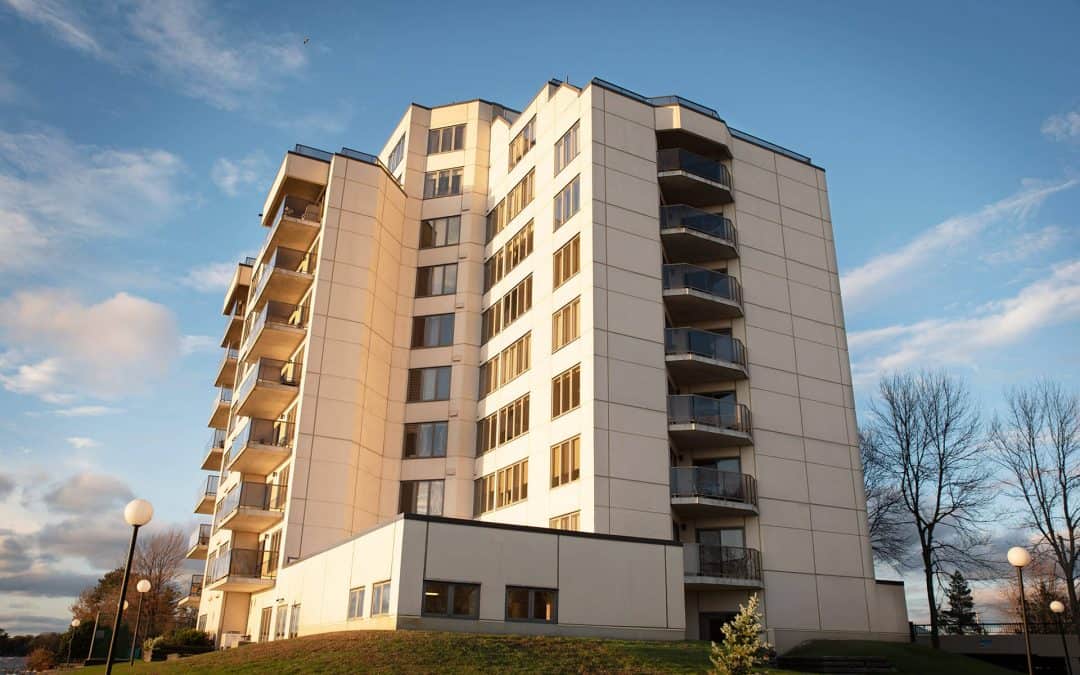Demystifying The Reserve Fund Study
After years of working as a reserve fund study specialist, what I’ve learned is that it’s one of the least understood financial documents in the world of property management. And I’m never surprised. Mostly legal and accounting, a reserve fund study is just too complicated and not everyone’s cup of tea. Having said that, I’d also like to point out that it’s a bit of an irony because if anything, the ultimate goal of a reserve fund study is to make the job for a condo property board easier.
At Avid CRP, our priority is to always protect the interests of our clients and therefore we like to emphasize that a reserve fund study should be treated as a financial planning tool. To be more precise, it’s a budget planning tool that helps you understand what assets you own today, how much money you have today, when will potential replacements be due and finally how much you need to put aside for those replacements. As the property manager, unit owner, or member, this is how you should be looking at the document to make the most sense of it.
So the important question is: what should drive success for you as a client? Hint: It’s about picking the right provider. Picking the right provider with the right set of experience and technical background will not only help you see the value in what they propose but will also make you respect their opinion. But wait, that is not all. As a client you should also stay on top of several ‘nitty gritties’ of a reserve fund study proposal so that you are able to ask the right questions. Remember that in order to have the right reserve study, you need to be clear on what are you expecting from it.
Top questions to ask your provider
While every provider will have a different funding philosophy and financial planning idea, there are a few questions you should ask all the providers. Below is a quick checklist to guide you.Remember to cover all the areas to properly evaluate every proposal that comes your way.
Ask what you will be receiving in your Reserve Fund Study
In Ontario, when the condo is new or if it is a new provider, the first study is a Comprehensive Class 1 with a site visit and full development of the component inventory. Thereafter, updates are required as a minimum every 3 years alternating between no site visit (Class 3) and with a site visit (Class 2)
Get to know the firm and provider
Remember once both of you agree to sign on, it will be a long term commitment. Therefore always check the firm’s credibility and reputation.
Incorporate necessary construction inflation
The effect of short-term and long-term inflation can have significant impact on the reserve fund over the next 10 years. It’s not reasonable to assume that the price of an elevator or roof would remain the same for the next 10 years. As such it’s important to account for any inflation adjustment in your reserve fund plan. Reserve fund planners are known for using their expertise to determine inflation projections based on past trends.
Costing and calculations
Cost estimates should not be solely based on construction cost services, such as the Gordian Building Construction Costs with RSMeans data. If using construction cost services, they should be verified through consultation with local contractors, fabricators and suppliers. Cost estimates are more reliable coming from the Corporation’s own expenditure history, as well has databases compiled by Reserve Fund Planners with expenditure information from other Corporations. Cost estimates should take into account additional costs associated with access restrictions, safety requirements, special construction, noise abatement, and occupant convenience.
Check for reserve fund study credentials and qualifications
According to the Condominium Act, the reserve fund study must be conducted by a qualified person. In Ontario, the provider requires certain certifications. Those are listed in Paragraph 32 of Regulation 48/01 here: https://www.ontario.ca/laws/regulation/010048#BK90
Ask if any reserve fund customization is required
While some providers will phase component replacement, others will not. Ask your provider which one is reasonable for you.
Understand what reserve funding option is used
Ask your provider which funding option they are using. Although there are several funding methods, the provider should always tailor it to your individual corporation as one may not work best in every situation.
Consider the reserve fund study completion timeline
Generally, it takes a decent amount of time to receive the study once it’s granted. Don’t expect to receive your study within just 30 days as most providers have a waiting list. It is always a good idea to ask for proposals months in advance, property managers need time to gather and send documentation, and board members need time to review the draft; so be sure to give yourself lots of time.
Ask for a sample reserve study for the board
Every provider should provide a sample study to review with the Board. The board needs to evaluate and confirm that the document can be easily understood as a financial planning tool.
How much will a reserve fund study cost
As much as price is an important factor, in this case it should not be the only key factor. As mentioned above, the more important part is to ask what value does the corporation receive for the associated expenses. For the price charged, make sure to ask if there is significant time commitment from the provider, if the person in-charge has sufficient technical knowledge and expertise to do the job and if all the right steps are followed through.
At Avid CRP, our goal is to work closely with our clients and understand their philosophy. Our clients will vouch for the value we deliver to them. For any questions related to a reserve fund study proposal, please reach out to us using any one of the following contact methods.



